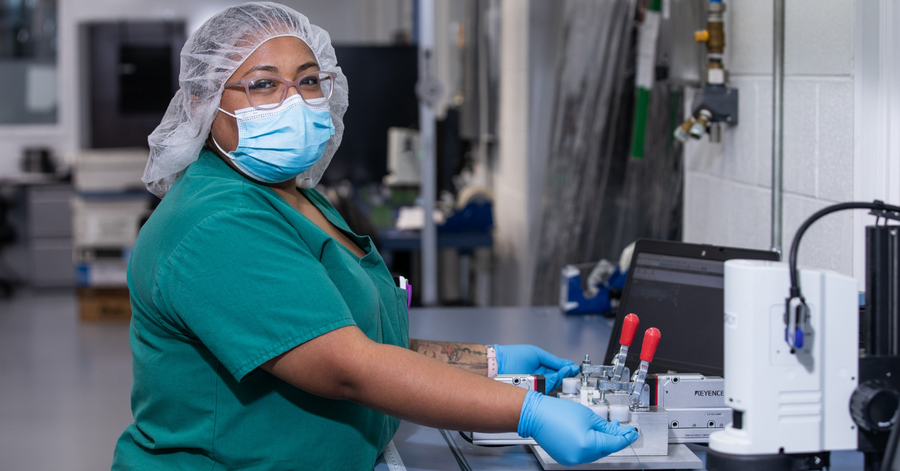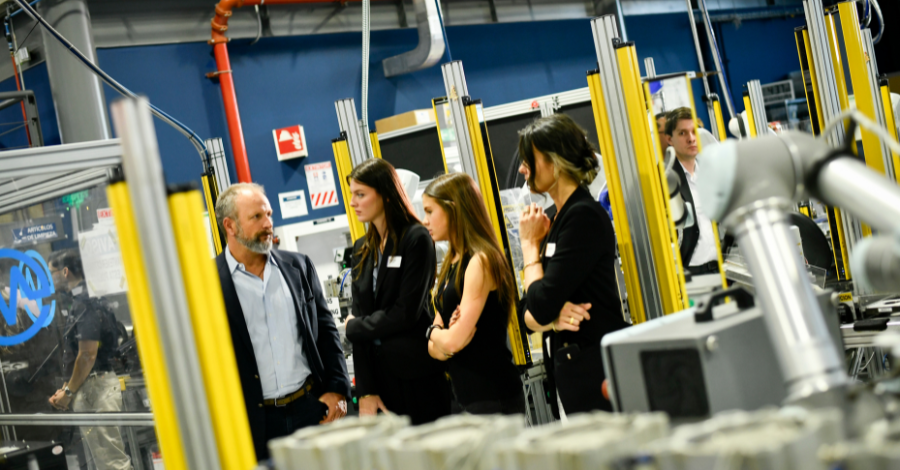NEWS
Behind Costa Rica’s mission to drive sustainable investment
- Article originally published by Investment Monitor Magazine.
- Business and investment leaders discuss how Costa Rica stands to be a primary destination for FDI that places higher value on sustainability and well-being in the wake of Covid-19.
By prompting significant focus on the environment and personal well-being, the Covid-19 pandemic has also brought into sharp relief the role of the investment community in supporting a sustainable recovery.
Almost overnight, companies faced mounting scrutiny over their environmental, social and governance (ESG) track record. Covid-19, it is hoped, will mark a turning point for progressive, ESG-led investment.
“Together, we must rise to the challenge and develop a road map towards economic stability,” Costa Rica’s representative to the UN, Rodrigo Carazo, said in a powerful statement in June. “We cannot return to pre-Covid economies; our economies must now be inclusive, sustainable, decarbonised and human rights-based.”
Free White Paper
Costa Rica is an established leader in this regard. Although the relatively small nation accounts for just 0.03% of the Earth’s surface, it is home to 6% of the world’s biodiversity. It is little wonder that investing in a green future has been a top priority, but recent events have crystallised the values of such an approach for the global economy as a whole.
The country has not been afraid to make bold climate commitments. Following decades of deforestation, Costa Rica managed to double its forest coverage. Today, over half its land is once again populated by lush rainforests. Perhaps most impressively, in 2019 it celebrated its third consecutive year of being powered exclusively by renewable energy for more than 300 days in a row.
So, when the outbreak of the pandemic forced the world to re-evaluate its values – and sustainability and well-being were under the spotlight – Costa Rica was ready and waiting.
Taking the lead
Over the years, Costa Rica has become a world leader in environmental policies, playing a key role in helping to attract eco-conscious foreign investors.
In 2018, the country joined the Wellbeing Economy Alliance, which brings together organisations from around the world, to transform the economy into one that puts human and ecological well-being first.
“Costa Rica’s commitment to sustainability is our flagship to develop the right conditions for multinational companies that are looking to invest with purpose,” explains Jorge Sequeira, managing director of Costa Rica’s Investment Promotion Agency (CINDE). “Under the ‘People, Planet, Prosperity’ pillars, [we are] boosting the opportunities for all those responsible enterprises that need a strategic partner to accomplish new business standards.”
Organisations in the personal care and well-being, food tech and biomaterials industries have been rapidly expanding, including a number of members of RE100, a global initiative that brings together more than 100 influential businesses committed to 100% renewable energy.
“Environmental sustainability is embedded in how we do business,” says communications and government relations director at P&G Costa Rica Fernando Calderón. “Thanks to Costa Rica’s leadership and innovation in environmental matters, P&G’s operation in Costa Rica has successfully implemented initiatives in line with our Ambition 2030 goals.”
P&G’s San José service centre has been able to achieve several of these goals – such as carbon neutrality and zero waste to landfill – significantly ahead of schedule. It is also very close to reaching the goal of using 100% renewable energy.
Costa Rica also offers a dynamic environment for innovation and R&D. The country is home to Veritas University where experiments are carried out as part of the International Design Programme to create sustainable textiles from natural materials like coconut, mango and wood.
“The primary objective is to reduce the consumption of natural leather and, therefore, its negative environmental impact, by employing knowledge and strategies from our design and research disciplines,” explains Professor Juan Guillermo Chica Ramirez, who has been supervising the project. “Additionally, we seek to progressively implement the concept of the circular economy for new generations of young students.”
Ramirez is currently undertaking a new project to find a viable, green alternative to fast fashion. “I have set out to research and develop a system for clothing manufacture that is not produced in bulk, as fast fashion is today, but rather approaches clothing production responsibly and based on specific user criteria, regarding the needs of the individual consumer,” he says.
For both projects, the university is in the process of securing investors in order to start implementing manufacturing processes.
Meanwhile, at the Costa Rica Technical Institute several labs perform specialist research in everything from cryopreservation to skin cell cultivation for therapeutic use.
A Blue Zone for business
Beyond the environmental policies, Costa Rica is celebrated for its ‘pura vida’ lifestyle. According to the Happy Planet Index, it is the happiest and most sustainable country in the world.
It is also home to Nicoya, one of five ‘Blue Zones’ around the globe that host an unusually high number of healthy centenarians. Most inhabitants live until at least the age of 90, around 20 years beyond the average life expectancy worldwide.
In 2017, cosmetic giant Chanel looked to Costa Rica’s Nicoya Peninsula when choosing the ingredients for its anti-aging serum. Tico coffee producers use a special extraction method to achieve the purest concentrate of green coffee, containing 70 times more antioxidant active molecules than are found in regular coffee beans.
A greener future
In February last year, Costa Rica made its boldest environmental proclamation to date, unveiling ambitious plans to reach carbon neutrality by 2050. The economy-wide commitment pledges to reform transport, energy, waste and land use, while continuing to expand its forests.
“The decarbonisation plan consists of maintaining an upward curve in terms of economic growth and at the same time generating a downward curve in the use of fossil fuels,” President Carlos Alvarado Quesada explained at the time.
The country’s minister for environment and energy, Andrea Meza Murillo, stresses that such targets are for the benefit of everybody in Costa Rica and a huge boon for future investment opportunities. “We’re proud to be a highly ambitious country in climate and biodiversity,” he says. “We believe that this is the way to modernise and dynamise our economy.”
Despite only producing 0.02% of the world’s emissions, this move is indicative of Costa Rica’s dedication to bringing about real change, setting an example for the bigger carbon offenders.
It also underscores the idea that the move towards decarbonisation makes economic sense and that sustainability and growth can work together, side by side. Times of crisis open up a space to change the conversation; Costa Rica looks ready to help lead the process.








